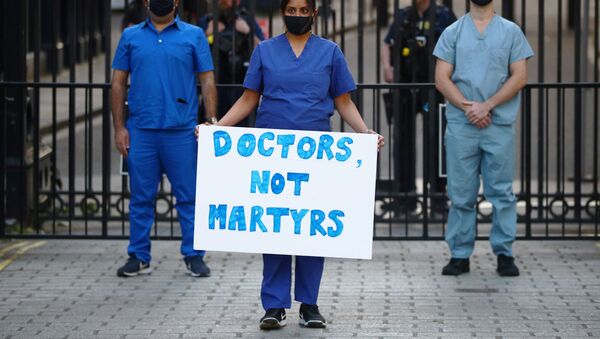A large unit within the NHS’s blood and organ transplant division has been found to be “systematically racist” and “psychologically unsafe”, according to an investigation into working conditions leaked to The Guardian.
The investigation found the atmosphere in the department was “toxic” and “dysfunctional”, reinforcing long-levelled claims from black, Asian and minority ethnic NHS employees they’d been subject to discrimination in the awarding of jobs, amid numerous complaints white candidates were given posts ahead of better-qualified black applicants.
BAME staff “tolerate a significant amount of poor behaviour from management that wouldn’t be acceptable in other workplace environments”, the report found, with “being ignored, viewed as ineligible for promotion and enduring low levels of empathy” seemingly “normal”. As a result, an environment has been created which is “psychologically unsafe and systemically racist”.
A brave and timely report. All too familiar stories of the ‘BAME’ experience in the NHS. As tough as this is for NHSBT, it’s good to see they are listening. #TimeForChange https://t.co/XL2JVb3cZk
— Manisha (@manishap75) June 9, 2020
The report found “recruitment is haphazard, based on race and class and whether a person’s ‘face fits’”, with one employee telling the report’s author a team leader said to them “I don’t want a Muslim in my team”.
NHSBT employs about 5,000 in 16 locations, although the report focused on the experiences of 450 staff within one unit in Colindale, London, and the experiences of staff in its manufacturing unit, where plasma and platelets are processed - there, out of 68 members of staff, 80 percent are BAME.
However, the report noted the Birmingham and Manchester NHSBT sites also had poor reputations for dealing with race-related issues, and racial bias in recruitment and promotion.
Good to be able to publicise the wonderful efforts of all NHSBT staff involved in the convalescent plasma programme and the teams in the REMAP-CAP and RECOVERY trials https://t.co/oFJHxQZntE
— Prof Mike Murphy (@MurphyProf) June 3, 2020
BAME staff told the report’s author they had repeatedly been rejected for jobs they felt they should have got, with white candidates securing posts despite having less experience and qualifications. One BAME employee described being laughed at after applying for a promotion.
“It was commented BAME employees with required skills to carry out a role do not perform well at interview and are not given the job. However, white employees who have less experience and skills are often promoted. A number of BAME colleagues commented that when they say hello to line managers in manufacturing, they do not respond although they reply to white colleagues. There was an ongoing theme about what I would describe as the incivility of managers and leaders. At least two BAME colleagues asked rhetorically ‘are we slaves?’” the report stated.
Dr Chaand Nagpaul, chair of the British Medical Association’s ruling council, said the report highlights “all too painfully the racial prejudices and discrimination we are seeing across healthcare”.
“We must renew efforts to challenge these behaviours and bring an end to the enduring injustices faced by black people and BAME healthcare workers here in the UK,” he added.
Dame Donna Kinnair, chief executive and general secretary of the Royal College of Nursing, who last week highlighted “structural racism” faced by nurses in the NHS, said a national institution with the status of the NHS “can ill afford any suggestion of this kind” - “my profession, and all of healthcare, celebrates its diversity - race should never be a barrier to advancement. Where there are concerns, we will press for investigation and the highest possible standards.”
NHSBT employees suggested the chronic shortage of BAME blood donors nationally and longstanding difficulties recruiting more donors may be linked to management attitudes, and widespread cultural insensitivity.
Betsy Bassis, chief executive of NHSBT, said she’d commissioned the report after listening to a large group of BAME colleagues talk about their experiences - a “difficult” experience.
“Whilst this report focuses on a particular site, we know that these issues are evident in other parts of our organisation. I am truly sorry to anyone at NHSBT who has experienced bias, discrimination and or microaggressions. This is unacceptable. We have and will continue to take action until NHSBT is a truly diverse and inclusive organisation,” she added.


